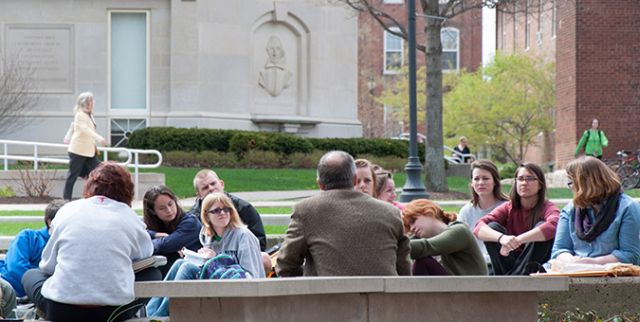
Philosophy Faculty Publications
Title
Review: 'Pragmatist Philosophy and Dance: Interdisciplinary Dance Research in the American South'
Document Type
Book Review
Publication Date
6-2021
Publication Source
Transactions of the Charles S. Peirce Society
Abstract
Eric Mullis’ Pragmatist Philosophy and Dance is a thoroughly multi-disciplinary and transdisciplinary book that is centered on and deeply engaged in the experimental and lived experience of Pentecostal dance in the American and Appalachian South. The focal point for Mullis’ research is not observation and critique of dance as embodied religious practice from a critical distance (although he does engage it critically and analytically) but from the inside, embedding his own person and body into the environment with all the resources of the unifying self that he has at his disposal to not just understand the form but feel it and live it. This makes Mullis a true William Jamesian and John Deweyan pragmatist; he doesn’t just critically reflect on the work of classical pragmatists but he takes the reader on a sustained and deep dive into the qualitative, aesthetics, doing-and-undergoing world of the phenomenon he is analyzing. He does this as both a maker and creator of his own form of artistic representation of religious, ecstatic dance, using tools from contemporary and postmodern dance, theatre, and performance, and as an audience member and participant of Pentecostal services. He tells us about his process, which is reminiscent of Dewey’s Barnesian explanation of how artists create art in Art as Experience, and he is willing to open himself up to the worries and possibility that he might, in the process, also experience true transformation and religious conversion (which has echoes of James’ Varieties of Religious Experience). The primary value of this book for the pragmatist scholar is thus not historical analysis of pragmatic texts (although Mullis does some exegesis as well) but his example of how to be a pragmatist philosopher.
Inclusive pages
402-405
ISBN/ISSN
0009-1774
Document Version
Postprint
Copyright
Copyright © 2021 Charles S. Peirce Society
Publisher
Indiana University Press
Volume
57
Issue
3
eCommons Citation
Bresnahan, Aili W., "Review: 'Pragmatist Philosophy and Dance: Interdisciplinary Dance Research in the American South'" (2021). Philosophy Faculty Publications. 187.
https://ecommons.udayton.edu/phl_fac_pub/187



Comments
The document available for download is the author's accepted manuscript. To read the version of record, read it on Project Muse.
No part of this article may be reproduced, stored in a retrieval system, transmitted, or distributed, in any form, by any means, electronic, mechanical, photographic, or otherwise, without the prior permission of Indiana University Press. For reuse, please contact the Copyright Clearance Center (www.copyright.com, 508-744-3350). For all other permissions, please visit http://iupress.indiana.edu.